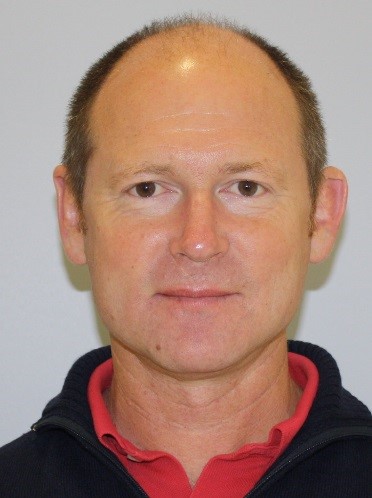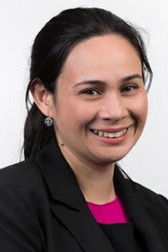Meet Our Students
 | Angeline Ferdinand, MPH, PhD Candidate Angeline’s doctoral research assesses Indigenous community participation in health in Chile with the aim of better understanding how local, national and international factors impact on community participation in diverse contexts and the viability of fruitful international knowledge exchange in this area. The research combines case studies of Indigenous community-controlled services in Latin America, interviews with Australian practitioners and policymakers and international examples of Indigenous community participation in health. In Chile, fieldwork focused on the cases of Makewe Hospital and Boroa Filulawen Intercultural Health Centre, which demonstrate two distinct models of intercultural health care provision. This research is supported by a National Medical and Health Research Council (NHMRC) Postgraduate Scholarship and Endeavour Postgraduate Scholarship. Work history UoM Supervisor: Margaret Kelaher. |
Teralynn Ludwick, MA, MPH, PhD Candidate Primary health systems in low- and middle-income countries (LMICs) are struggling to respond to the growing needs of the urban poor in the context of rapid urbanization, acute health worker shortages and resource constraints. Community health worker (CHW) programs, which rely on brief training of lay individuals, have been extensively implemented in LMICs as a means to address health disparities and health service gaps, primarily in rural settings. However, the lack of evidence on urban CHW programs has been identified by the Global Health Workforce Alliance as critical gap in strategies for achieving universal health coverage. Teralynn’s PhD project will explore the opportunities and challenges that arise when adapting the CHW model to the urban context. Teralynn Ludwick has held positions at the International Development Research Centre, the Association of African Universities, Healthy Child Uganda, the Public Health Agency of Canada, and the Canadian International Development Agency. Her past research and work has focused on community health worker programs, non-communicable disease prevention, and implementation science. Supervisors: | |
 | Tony Barnett (BA, Master Social Policy, MSc). Tony's PhD thesis examines the nature and effectiveness of education support interventions for children and adolescents with chronic illnesses. Work history: Tony has most recently worked as Head of Policy and Research at the Royal Children’s Hospital Education Institute. Prior to that he was Senior Manager, Early Childhood, at the Brotherhood of St Laurence Research and Policy Centre. Supervisors: Margaret Kelaher and Sharon Goldfeld. |
Christina Lumbantoruan Christina’s PhD thesis examines the effectiveness of prevention of mother-to-child transmission of HIV (PMTCT) in Papua, Indonesia. Papua is the region most affected by HIV in the country with a prevalence of 2.3% among the general population. Coupled with poor uptake and retention in the program, unborn and newborn infants are at high risks of contracting HIV through perinatal transmissions. Her research focuses on identifying the reasons for continuous transmissions following Option B+ implementations, aspiring to find solutions to improve program outcomes. To meet these objectives, she utilizes a mixed methods approach, combining national surveys, in-depth interviews, and field observations. Work history: Prior to her PhD, Christina was a Senior HIV Research Coordinator for the Clinton Health Access Initiative. She supported the sub-directorate of HIV and AIDS on various HIV research projects in Papua and West Papua. She also managed the Global Fund project for HIV-related logistics, ARV decentralization, and recording-reporting. Supervisors: Margaret Kelaher and Michelle Kermode. | |
 | Jade Hart, MHSM, BSc (HIM) Jade’s PhD thesis examines how statewide clinical network stewardship models influence the use of evidence in State health system decision-making processes. Clinical networks are an Australian State Government initiative that seeks to realise clinical and system leadership and overcome the challenges of health system fragmentation. The use of evidence in decision-making and policy, and the subsequent implementation of evidence-informed practices, is central to these roles. This raises the questions: what is evidence? And what does evidence use involve? Jade’s research program aims to support integrated theory building and the development of a conceptual framework. Work history: Jade Hart, MHSM, BSc (HIM) currently manages the Victorian and Tasmanian Primary Health Network Alliance and has previously worked in health consulting, academia and State Government. Supervisors: Margaret Kelaher and Helen Dickinson. |
 | Ebony Verbunt - MPublicHealth, BArts (Anthropology and Psychology) At the Nossal Institute for Global Health, Ebony co-produced a scoping review on the role of urban community health workers (CHW) in low-and-middle income countries (LMIC) in addressing non-communicable diseases (NCDs) and mental health disorders. A search of the literature generated 856 articles, with two reviewers independently conducting the title, abstract and full-text review. 15 NCD and 12 mental health studies were included, with data extracted on the characteristics of studies, programmatic components and health outcomes achieved. The primary location of studies was South Africa, with inconsistent reporting on programmatic components. Significant, positive health outcomes were predominantly achieved for CHW programs addressing NCDs, whilst for mental health, the outcomes were mixed. Ebony’s review has drawn several recommendations for future research, including the need for qualitative research into programmatic components. Ebony is a research assistant at Centre for Health Policy, Melbourne School of Population and Global Health. She is currently working on a project seeking to improve the cultural competency of Genetic health services for Aboriginal and Torres Strait Islanders. Supervisors: Margaret Kelaher and Teralynn Ludwick. |
Peita Price Peita's PhD thesis examines what is the effect of phone-based intervention on frequent presenters to Royal Melbourne Hospital with Chest pain? In 2016 Peita Price won the Cardiac Society of Australia & New Zealand (CSANZ) award – affiliate nursing prize (see opposite photo) In 20178 Peita Price published a key study from her PhD: A small percentage of the population represent a disproportionate number of attendances at emergency departments (ED). “Frequent presenters” to ED with chest pain do not always fit into established pathways for acute myocardial events. In March 2011, a gap was identified in existing services for this patient group and a pilot was designed. Under the Hospital Admission Risk Program (HARP) a chest pain pilot was funded to test a phone-based care coordination model designed to meet the broad needs of patients with cardiac and non-cardiac chest pain. This research is designed to evaluate the effectiveness of this pilot. Supervisors: Lucio Naccarella and Danny Liew. | |
John Kole John's MPhil is an Exploration of Factors Influencing the Settlement of Male Hazara Youth Who Migrated to Melbourne As Unaccompanied Minors Asylum seeker boat arrivals to Australia have dramatically increased from; 309 in 2007-2008 to 18,119 in 2012-2013. About 50% in 2012-2013 were Afghans, a significant majority, of whom anecdotally, were male Hazara unaccompanied minors (UAMs). During 2001-2013, Asylum seeker policies for UAMs changed from mandatory detention community detention to temporary visas. Supervisors: Lesleyanne Hawthorne & Lucio Naccarella. |